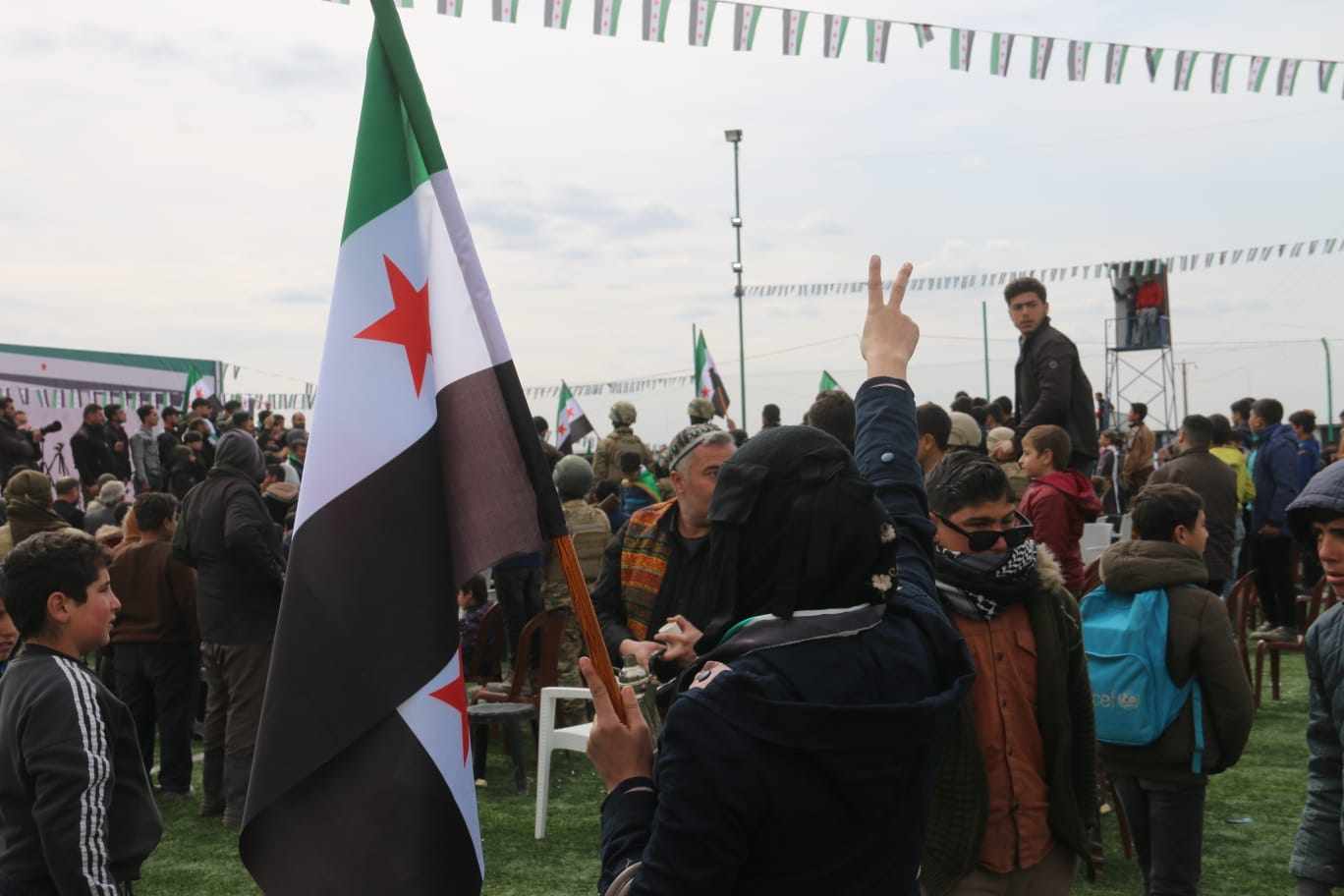
Languages
Available In
At around dawn on Tuesday, February 27, 2024, the family of activist Heba Suhaib Haj Aref found her body in her house in Bza’a city in eastern rural Aleppo governorate; she had been hanged. A few hours later, her body was removed by officers from the Bza’a Police Station, which is affiliated with the Syrian National Army (SNA) and taken to the al-Bab al-Jadid Hospital for autopsy. The civilian police force in the city is currently investigating the murder.
According to intelligence that the Syrian Network for Human Rights (SNHR) received from other female activists, Hiba Suhaib Haj Aref had received threats from different military groups over her role as an activist working to empower women and support women’s rights, and her former membership of the Bza’a municipal council in May 2023. During that period, Heba was the victim of several campaigns of slander and harassment by different armed factions affiliated with the SNA, as well as by local civilians, which eventually forced her to tender her resignation.
Unfortunately, the SNA and its judiciary and police apparatuses have not launched any investigation into or held anyone accountable for the threats she received.
Heba, who was in her thirties, was a native of Bza’a city. At the time of her death, she was working as an educational supervisor at the Fraternity Center for Public Education, which is affiliated with the ‘New Step Educational Association for Culture and Solidarity’ [Yeni Adım Eğitim Kültür ve Dayanışma Derneği], as well as being a member of the Women’s Protection Network, the Women’s Support and Empowerment Unit, and the Women’s Feminist Movement. As mentioned above, she had also previously served as a member of Bza’a city’s municipal council. Heba is survived by her husband and two sons. Her murder is an immensely traumatic experience for her family, particularly her two young sons, as well as for her fellow women activists who feel more than ever that they are working in a hostile, insecure and unprotected environment.
SNHR has shed light on the many types of violations suffered by women in Syria in dozens of our reports, particularly women activists and workers in northeastern and northwestern Syria, over their activism and their instrumental roles in the provision of various humanitarian, political media and other services, and in women-oriented roles. This persecution also includes various military forces raiding women’s homes and female-run facilities and carrying out military operations that affected women. Between March 2020 and March 2024, we recorded at least 268 incidents of assault and intimidation targeting women by the parties to the conflict in northeastern and northwestern Syria. Those violations have, naturally, had a heavy physical and psychological toll on women, driving many of them to leave their areas, stop their work, limit their activism, or flee and travel to other areas. In fact, we have also noticed a notable decline in the rates of engagement in women-related activism by many affected women, which has ultimately undermined the state of women’s rights in those areas.
Based on the earlier threats Heba received and the suspicious circumstances surrounding her death, we believe she did not commit suicide, but was murdered. Corroborating this belief are accounts from some of her many friends who we spoke with, who told us that she was not suffering from any psychological conditions. On the contrary, they said, she was as dedicated as ever and carrying out her duties as usual until the day before her death.
SNHR condemns the murder of Heba Suhaib Bza’a Haj Aref in Bza’a city and we stand in solidarity with her bereaved family and with all women workers and activists inside Syria. We call on the Syrian Interim Government, the National Coalition of Syrian Revolutionary and Opposition Forces, the civilian police, and the SNA, to launch a thorough, independent, and transparent investigation into this incident and to make the findings of this investigation public, and accordingly to hold those responsible to account. SNHR also calls on these bodies to provide the necessary protection for women workers and activists in their territories to ensure their safety and foster a suitable environment. Lastly, all threats and assaults against women workers and activists must be taken seriously and action must be taken against those responsible, as the authorities controlling these areas must bear legal, as well as moral, responsibility for their management of their areas.


